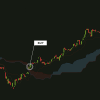| Title | Short desc | Long desc | tag | color | small icon | large icon |
| all | all | #A585B9 | ICONS.ALL | ICONS.ALL | ||
| trend following | Trend following strategies | Trend following First things first. Trend Trading has stood the test of time. And that too for a good reason – it works! Documentation of trend trading dates back to the 19th and 20th centuries, and it continues to be popular to this day. If you’re a trend trader, then you’re basically asking the market to ‘show its hand.’ In other words, you analyze the data available to you and use it as an advantage in determining the direction of the trend. | trend following | #F4E5FD | ICONS.TREND_FOLLOWING | ICONS.TREND_FOLLOWING |
| price action | Price action strategies | They say, “Trade what you see, not what you think.” But what does that mean? Suppose you are using two indicators: the RSI and the Stochastic. Now, what if one is overbought and the other indicator is oversold, at the same time? Won’t you have conflicting signals? Indeed! But no worries! You can adjust the settings of your RSI indicator and make it oversold, so now, both your RSI and Stochastic indicator are sending out the same “signal”. But instead of manipulating an indicator to fit your bias, you need to look out for what the price is telling you. And then use the indicators as a confirmation of the signal or the trend. | price action | #E3FFE0 | ICONS.PRICE_ACTION | ICONS.PRICE_ACTION |
| mean reversion | Mean reverting strategies | Are prices high or low on a relative basis or has the price deviated too much from the mean price? The law of mean reversal means that if a price moves away from the mean price, it tends to return to the original mean price. This is going to give you better clarity of overbought and oversold levels. You can make better trade decisions about when to enter or exit a trade. | mean reversion | #D3FCFF | ICONS.MEAN_REVERSION | ICONS.MEAN_REVERSION |
| overlays | Overlay indicators based strategies | overlays | #A585B9 | ICONS.OVERLAYS | ICONS.OVERLAYS | |
| options strategies | Option contracts strategies | Options trading strategies run the gamut from simple, “one-legged” trades to exotic “multi-legged” beasts that seem like they’ve emerged from a fantasy novel. But simple or complex, what all strategies have in common is that they’re based on two fundamental option types: calls and puts. Let’s have a look, shall we? | options strategies | #E8E5FD | ICONS.MISCELLANEOUS | ICONS.MISCELLANEOUS |
| momentum | Momentum based strategies | “The trend is your friend until the end when it bends.” If you’re a Bullish trader, you might continue to ride the momentum higher and higher and head towards a destructive ending. And if you’re a bearish trader you might fight the trend and miss opportunity after opportunity when it looks like the market is ready to break. Momentum indicators are used to determine the rate at which the stock is gaining or falling in the market. Avoid missing opportunities using these strategies | momentum | #FEF2EC | ICONS.MOMENTUM | ICONS.MOMENTUM |
| miscellaneous | Contains strategies with a mix of indicators types | miscellaneous’ | #A585B9 | ICONS.MISCELLANEOUS | ICONS.MISCELLANEOUS | |
| pivot points | Pivot point based strategies | pivot points | #E8E5FD | ICONS.PIVOT_POINTS | ICONS.PIVOT_POINTS |







